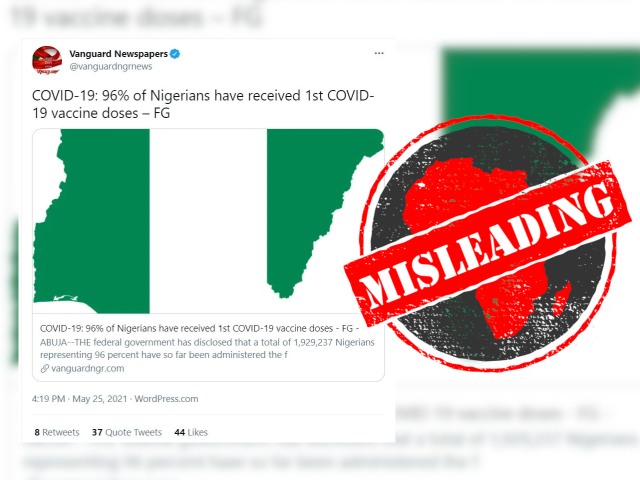“Believe it or Not - Library found in Tibet with 84.000 rolls and untouchable books, it has been holding the history of humanity for over 10.000 years,” begins a Facebook post shared in South Africa.
It shows a photo of a man staring up at a massive shelf, extending to the roof and beyond the frame of the photo, packed with thousands of objects that appear to be scrolls.
The post has been viewed more than 7.5 million times since it was published on 17 September 2020. But Facebook’s fact-checking system has flagged it as possibly false.
Has a 10,000-year-old library been discovered in Tibet?

A Google search reveals that the photo is genuine, and shows the library of Sakya Monastery in Tibet.
The photo has been shared on the Pinterest account Tibet Tenzin. Similar photos of the library have been published on the Tibet Travel website, the website of photographer Chris Roche and the Alamy stock photo site.
The Sakya Monastery is the seat of the Sakyapa sect, one of the four major schools of Tibetan Buddhism.
The first structure on the site was reportedly built in 1073, a thousand years ago. The monastery then grew to more than 100 buildings. But much of it was destroyed in China’s Cultural Revolution in the last decade of Mao Zedong’s rule, from 1966 to 1976.
The library holds over 40,000 texts handwritten in Tibetan, Sanskrit, Chinese and Mongolian, on a wide range of subjects such as medicine and philosophy. In 2003, monks discovered a sealed wall containing 84,000 more texts, speculated to date back several hundred years.
The monastery is 1,000 years old. Africa Check has not found any evidence that any of the texts in its library are 10,000 or more years old.
The Sakya Monastery in Tibet does exist, and its library does contain some 84,000 centuries-old texts. But neither the library nor the texts date back 10,000 years. – Naledi Mashishi
It shows a photo of a man staring up at a massive shelf, extending to the roof and beyond the frame of the photo, packed with thousands of objects that appear to be scrolls.
The post has been viewed more than 7.5 million times since it was published on 17 September 2020. But Facebook’s fact-checking system has flagged it as possibly false.
Has a 10,000-year-old library been discovered in Tibet?

Sakya Monastery in Tibet
A Google search reveals that the photo is genuine, and shows the library of Sakya Monastery in Tibet.
The photo has been shared on the Pinterest account Tibet Tenzin. Similar photos of the library have been published on the Tibet Travel website, the website of photographer Chris Roche and the Alamy stock photo site.
Hidden 84,000 texts discovered in 2003
The Sakya Monastery is the seat of the Sakyapa sect, one of the four major schools of Tibetan Buddhism.
The first structure on the site was reportedly built in 1073, a thousand years ago. The monastery then grew to more than 100 buildings. But much of it was destroyed in China’s Cultural Revolution in the last decade of Mao Zedong’s rule, from 1966 to 1976.
The library holds over 40,000 texts handwritten in Tibetan, Sanskrit, Chinese and Mongolian, on a wide range of subjects such as medicine and philosophy. In 2003, monks discovered a sealed wall containing 84,000 more texts, speculated to date back several hundred years.
The monastery is 1,000 years old. Africa Check has not found any evidence that any of the texts in its library are 10,000 or more years old.
The Sakya Monastery in Tibet does exist, and its library does contain some 84,000 centuries-old texts. But neither the library nor the texts date back 10,000 years. – Naledi Mashishi
Republish our content for free
For publishers: what to do if your post is rated false
A fact-checker has rated your Facebook or Instagram post as “false”, “altered”, “partly false” or “missing context”. This could have serious consequences. What do you do?
Click on our guide for the steps you should follow.
Publishers guideAfrica Check teams up with Facebook
Africa Check is a partner in Meta's third-party fact-checking programme to help stop the spread of false information on social media.
The content we rate as “false” will be downgraded on Facebook and Instagram. This means fewer people will see it.
You can also help identify false information on Facebook. This guide explains how.



Add new comment